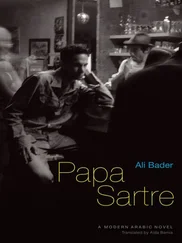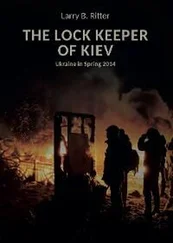‘Do you think the clerics can snatch the revolution from the thinkers and intellectuals?’ asked Mohammed Taqi.
Haidar felt the weight of history in Iran as he felt it in Iraq. He suddenly found himself caught up in the fray, in the conflict between the clerics who wanted an Islamic republic and the Islamic liberals who wanted a democratic Islamic republic. He sensed this conflict in the old leftist Mohammad Taqi. From the moment he entered his house, he was extremely agitated. He would unbutton his shirt which he wore without a tie and throw the papers onto the sofa, shouting, ‘This isn’t an honest fight for power between the clerics and liberals, it’s an attempt by the clerics to dominate. At the beginning, they wanted to secure a few seats but now they want them all. Establishing a religious state means that they alone will be in charge.’
Haidar realized that the clerics wanted to tighten their control and authority, which was why the assassinations and imprisonments had begun. The clerics were staunchly supported by the peasants who’d come to the cities, by the faithful and their children, by the illiterate and the ignorant. Haidar Salman watched the political events unfold in Iran. At the café he’d find Mohammad Taqi trembling because the government had shut down the opposition papers. He explained the situation with great agitation, his eyes red and his lips trembling. In front of him sat his friend, Tabrizi, who was also furious.
Haidar Salman stopped going out with Pari. He would walk the streets aimlessly. He let his beard grow long and buttoned his shirt at the top in the manner of the Islamists. He continued to watch the demonstrations, conflicts and civil unrest until the Mujahideen Khalq Organization declared an armed struggle, which made it impossible for him to go out. So he would watch the streets from the window of his room. On 20 June at four o’clock in the afternoon the Mujahideen Khalq took to the streets to begin the armed revolution. They attacked some government buildings in Tehran and other cities. The Revolutionary Guards, Hezbollah and the Revolutionary Committees stood against them, and before darkness fell they had succeeded in defeating and dispersing them in Tehran and other cities.
He wrote to Farida: ‘There are fires everywhere. Buildings, cars, offices, theatres, headquarters and houses are on fire. Fights, assassinations and executions are taking place. In Iranian Kurdistan, where the Democratic Party of Iranian Kurdistan controls large areas, there have been firefights with the authorities. The party has allied itself with Banisadr and has begun expanding its sphere of influence.’
One day, he was surprised to be contacted by Farrah Nikdahar, one of the young people connected with Fida-e Khalq, an organization specializing mainly in assassinations. Farrah wanted to meet him at Naderi Café on Wali al-Asr Street. He was extremely civil and courteous. He was also clean-shaven, with long dark hair. His eyes looked remarkably serene.
A book in Persian and a few newspapers lay on the table.
‘We know you well. You’re the leftist composer, Haidar Salman. I’ve been sent by Reza Shaltoki.’
Shaltoki was a leftist officer who’d spent more than twenty-five years in the Shah’s prisons and had been tortured mercilessly by the SAVAK.
‘What exactly do you want from me?’
He smiled. ‘On the contrary, we ask you what you want from us. Hassan Qazlaji has been murdered by the Revolutionary Guards. You’d asked him for something, and we’ll do it instead.’
‘I want to get out of here.’
‘Where do you want to go? We can guarantee your exit from Tehran to the country of your choice.’
‘Syria. Damascus. The closest place to Baghdad. I need to try to get to Iraq.’
The following day, Haidar told his host Mohammad Taqi that he wished to move to another house. Mohammad Taqi felt that Haidar Salman might be worried about living under the roof of a man known by the Revolutionary Guards to support the liberals. ‘This is your home,’ he told him. ‘Any time you wish to come, you’ll be most welcome.’
When Pari came home that evening, she learned from her mother that Salman was planning to leave the house.
During the night, she went up to his room. He was so totally engrossed in his writing that he didn’t notice her come in. She caught him in the act of writing with invisible ink. He sat near the bed, with his suitcase packed and placed in the corner. He took off his scarf and gave it to her. With tearful eyes, she took off her own shawl and fell into his arms, kissing him and crying. She showered his lips with kisses and melted in his embrace.
She stood up slowly, her hair falling luxuriantly on both sides of her face. She took off her jacket, her dark eyes sparkling and her breath heaving. She took off her shirt and trousers. She took his shirt and threw it aside while he took off his trousers himself. She wrapped herself around him, her belly white and her hips warm. She then began to move her belly towards him. In a final bending motion that seemed like dancing, she took off her knickers and threw them on the sofa. Her arms reached out to embrace him, her elbows bent, her torso motionless, her pelvis shaking. Her body produced a faint noise as it rubbed against his. He ran his hands over her firm body, bronze buttocks and smooth pubic area. She spoke some words in Persian that he didn’t understand. Their eyes met with an increasing intensity until they fell onto the bed, drenched in sweat.
On the following day, he found a small apartment on the second floor of a two-storey building near Revolution Square. He obtained a ration card from the mosque. The woollen collar of his dark coat was speckled with dandruff. In his left hand he carried a suitcase tied with rope. His shirt cuffs were not clean and he was utterly exhausted. The small room he’d rented echoed with the sound of emptiness. He sat in a corner that had no windows. An unmade bed, a tattered rug, a small paraffin cooker, a pot and a frying pan, as well as his suitcase, were the only objects in the room. After untying the rope he took a sheet and a blanket out of the suitcase and spread them beneath the dusty window. Without a pillow or a quilt he settled down to sleep. The room seemed like a cave. The ceiling lamp reflected off the cold floor. He had nothing with him except his suitcase and a book on contemporary art that he’d bought at a bookshop on Wali al-Asr Street. He felt that his life was without meaning or value. He curled up facing a bare wall that was splattered with paint.
In a couple of days, he was contacted. The organization had got him the passport of a man who’d died in a car accident a few days earlier. It was in the name of Kamal Medhat Hassan, an Iraqi merchant married to a woman from Mosul called Nadia al-Amiry. She had married him a year earlier and was now living in Damascus. She had been the widow of a Syrian called Mohammad Aqla from Hama, who’d been killed in the confrontations between the Islamists and the state. That was all he knew about his new identity.
A journalist came by and dropped the passport in the tank of one of the toilets at the Royal Park Hotel in the north of the Iranian capital. Haidar picked it up a short while later, to avoid it being discovered.
As soon as he read his new name and saw his photograph and date and place of birth in the passport, he felt that the persona of Haidar Salman had vanished without a trace. Suddenly he felt so alienated from it that it seemed to have been imposed on him. He had a far greater sense of identification with the new character of Kamal Medhat.
From Kamal Medhat’s life (1933–2006)
‘Oh! I know him. He is the tobacco keeper, devoid of metaphysics.
Читать дальше












